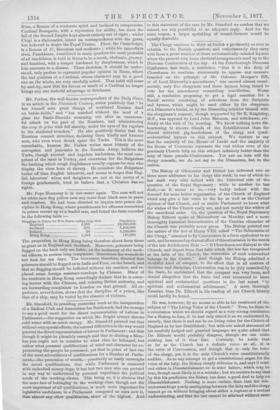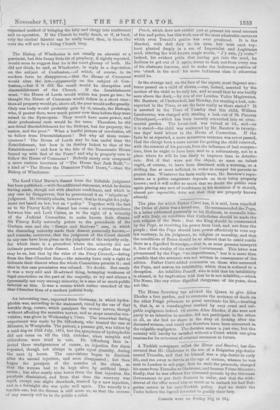He was, however, by no means so able in his
treatment of the subject of "The Living Voice of the Church." True, he came to a conclusion which we should regard as a very strong,00nolusion for a Bishop to face, if he had only stated it as we understand it, namely, that there is and can be no living voice for the Church of England as by law Established ; but with our naked statement of his carefully hedged and guarded language, we euite admit that Dr. Ellicott would probably disagree, though we can make nothing less of it than that. Certainly, he holds that so far as the Church has a definite voice at all, it is the voice of Convocation, and though that is only the voice of the clergy, yet it is the only Church's voice constitutionally audible. As to any attempt to get a constitutional organ for the voice of the laity, the Bishop simply ridicules it, and says it must end either in Disestablishroent or in utter failure, which may be true, though most likely it is a mistake ; but we venture to say that by this his prediction the Bishop has done a good deal to help on Disestablishment. Nothing is more certain than that the mis- understandings yearly, multiplying between the laity and the clergy cannot go on without bringing about either a rupture or a mutual understanding, and that the last cannot be attained without some
organised method of bringing the laity and clergy into conference and co-operation. If the Church be really dumb, or if, at least, only the clerical falsetto can be really heard, then, in times like cure she will not be a living Church long.



































 Previous page
Previous page